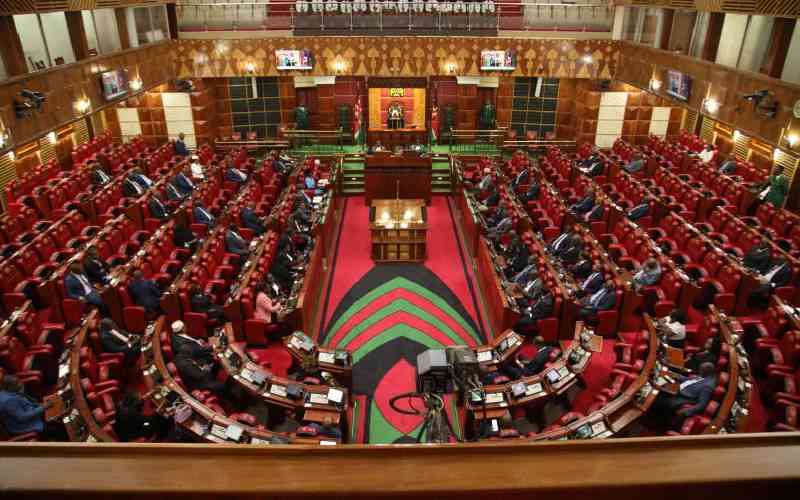There was a time when Parliament stood as the beating heart of our democracy. It was not just a chamber of laws, but a sacred house where the will of the people found expression, where justice was defended and leadership meant service.
That time feels like a distant memory. Today, our Parliament has ceased to be the people’s house. It has become a marketplace where votes are auctioned, a stage where arrogance and ignorance reign, and a bazaar where duty to the nation is sold to the highest bidder.
This descent from temple to marketplace is not accidental. It is the product of choices, choices made by leaders who have traded principle for profit, and by citizens who have too often watched in silence. The consequence is a Parliament that no longer safeguards democracy but endangers it, a Parliament that no longer speaks for the people but conspires against them.
The Constitution entrusted Parliament with a solemn mandate: to make laws for the good of the nation, to represent citizens faithfully, and hold the Executive accountable. These duties were never meant to enrich members but safeguard the collective good. Yet, what do we see today?
Follow The Standard
channel
on WhatsApp
We see a Speaker who pockets more in monthly airtime allowance than a Junior Secondary School teacher earns. We see MPs allocating themselves endless perks while doctors, nurses, and teachers are told to tighten their belts. We see committees that should interrogate government spending transformed into rubber stamps. The imbalance is grotesque: those who heal and teach are treated as expendable, while those elected to serve indulge in excess. It is arrogance sustained by ignorance.
When Parliament debates, it should be a contest of ideas. Instead, it has degenerated into a theatre of noise, heckling, and shallow posturing. Too many MPs do not read the Bills they pass; they do not scrutinise the budgets they approve. Attendance at committee meetings depends less on the urgency of the issue and more on the allowances attached. This ignorance would be tragic if it were not paired with arrogance. MPs mock their constituents with impunity, flaunting ill-gotten wealth and dismissing criticism as if accountability were beneath them.
The brazenness of corruption within Parliament is shocking. Votes are no longer guided by conscience or evidence but by cash. Bills pass not because they serve the people but because envelopes change hands in backrooms. Oversight collapses when committee chairs become clients of the very ministries they are meant to check.
This is why punitive taxes are imposed without hesitation while laws that could ease citizens’ burden languish. This is why billion-shilling scandals are glossed over with silence, while farmers, workers and small traders struggle. Parliament has turned itself into a broker of interests, auctioning national destiny at the altar of greed.
When Parliament betrays its purpose, the damage ripples far beyond its chambers. Citizens lose faith in democracy. Cynicism replaces engagement. Voter turnout shrinks because people see little point in choosing leaders who serve themselves instead of the nation. The betrayal of trust corrodes unity, fuels resentment, and sows the seeds of instability.
Is Redemption Possible? It would be tempting to conclude that Parliament is beyond repair. But democracy cannot survive without functioning institutions. The challenge, therefore, is not to abandon Parliament but to redeem it.
That redemption begins with citizens. Sovereignty rests with the people, and when MPs betray that sovereignty, citizens must act. They must demand transparency in voting records, insist on accountability for campaign financing, and exercise their right to recall representatives who betray the public trust. Civic education and grassroots mobilisation are not luxuries.
Parliament does not belong to MPs, party barons, or the Executive. It belongs to the people. Its degeneration into a marketplace is not irreversible, but its redemption will not come from within. It will come only when citizens reclaim their sovereign power and demand that Parliament return to its original purpose: service to the nation.
Follow The Standard
channel
on WhatsApp
By Gitobu Imanyara


